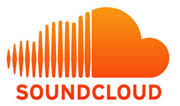en.wikipedia.org/wiki/Disco
Disco is a genre of dance-oriented music whose origins are hard to define.
In what is considered a forerunner to disco style clubs in February 1970 New York City DJ David Mancuso opened The Loft, a members-only private dance club set in his own home.
Most agree that the first disco songs were released in 1973, though some claim Manu Dibango's 1972 Soul Makossa to be the first disco record.
The first article about disco was written in September 1973 by Vince Aletti for Rolling Stone Magazine.
In 1974 New York City's WPIX-FM premiered the first disco radio show.
Musical influences include funk, soul music, and salsa and the Latin or Hispanic musics which influenced salsa. The disco sound has a soaring, often reverberated vocals over a steady "four-on-the-floor" beat, an eighth note (quaver) or sixteenth note (semi-quaver) hi-hat pattern with an open hi-hat on the off-beat, and prominent, syncopated electric bass line. Strings, horns, electric pianos, and electric guitars create a lush background sound. Orchestral instruments such as the flute are often used for solo melodies, and unlike in rock, lead guitar is rarely used.
Well-known late 1970s disco performers included Bee Gees, Donna Summer and The Jacksons. Summer would become the first well-known and most popular female disco artist, and also played a part in pioneering the electronic sound that later became a part of disco.
While performers and singers garnered the lion's share of public attention, the behind-the-scenes producers played an equal, if not more important role in disco, since they often wrote the songs and created the innovative sounds and production techniques that were part of the "disco sound".
Disco was very important in the development of Hip hop music (especially the subgenres of crunk, snap, and hyphy), British New Wave, and disco's direct descendants: the 1980s and 1990s dance music genres of house music and its harder-driving offshoot, techno.
(Wikipedia)
skip to main |
skip to sidebar
Life is Music
Links
- 10 Cheesiest Singers
- 10 Most Annoying Singers
- 25 Best Heavy Metal Bands
- 25 Best Live Rock Albums
- 25 Most Controversial Album Covers
- 25 Worst Hair Metal Bands
- 25 Worst Rappers
- Bandvertising
- Best Album Covers Ever
- Billboard
- Blender
- BPM Magazine
- Breakfast Club
- Buzznet
- Colorpulse
- Exclaim!
- Extending Album Art
- FADER
- Filter Magazine
- Galaxie Player
- Gasoline Magazine
- Idolator
- inDiscover
- Jango
- Lala
- Last.fm
- Lists of Bests: Music
- LyricsMode
- MISS DELITE
- Miss Delite YouTube
- MOJO
- Moodstream
- More 60s
- More 70s
- Music in Movies & TV
- Muxtape
- My Flash Fetish
- Ongoing History of New Music
- Pitchfork
- Popjustice
- Prefix Magazine
- Project Playlist
- Punknews.org
- Q The Music
- Rock's Backpages
- Song Chart Meme
- Spinner
- Spotify
- The History of Rock
- Ultimate Song Covers
- Vestal
Blog Archive
Labels
- 00s
- 10s
- 2010s
- 20s
- 40s
- 50s
- 60s
- 70s
- 80s
- 90s
- ads
- anthems
- blogs
- blues
- Broadway musicals
- carols
- charts
- commentary
- country
- dance
- definitions
- disco
- doo-wop
- electro
- folk
- funk
- gospel
- hip hop
- hype
- image gallery
- jazz
- lyrics
- Motown Records
- movie musicals
- music sites
- music videos
- obits
- on stage
- opinion
- pop
- pop culture
- protest songs
- rhythm and blues
- rock
- rock and roll
- soul
- sound tracks
- video




